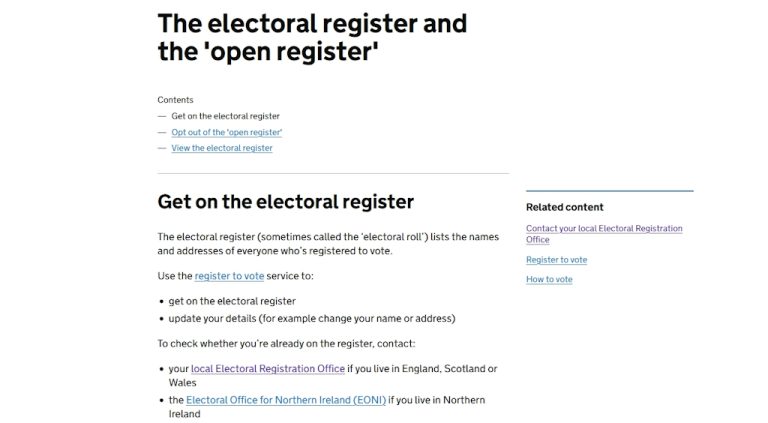Being on the electoral register is about more than being able to vote or receiving more junk mail.
It can impact your credit score and how willing lenders are to work with you.
Living off grid is all well and good and everyone can live life their own way.
But, if you want to vote, access loans and mortgages and be traced using credit checks, you really should be on the electoral register.
What is the electoral register?
The electoral register is a government list of names and addresses. A register of who lives where and who is eligible to vote.
It’s a well-established system that has worked for decades.
There are two registers, the open register and the full register.
The open register is what firms use to send you junk mail and is available to anyone. This is the one you can opt out of if you want to.
The full register is the one used for elections and voting. You cannot opt out of this one but the public, or companies (officially) cannot access the data.
Somehow companies always seem to find out where you are even when you opt out of the open register, but that’s a conversation for another time!
How to check if you’re on the electoral register
Checking to see if you’re on the electoral register is simple but the method depends on where you live.
In England, Scotland or Wales contact your local Electoral Registration Office to find out whether you’re on the register.
In Northern Ireland, you’ll need the Electoral Office for Northern Ireland (EONI) to find out whether you’re on the register.
Enter your postcode into the box and select Find.
You’ll then see the name, address, email and phone number of your local electoral registration office.
Contact them and they can tell you if you’re on the register or not.
If you’re registered at your current address, that’s all you need.
If you’re not registered, you can do so with your local office by providing some details.
Being on the electoral register
Be aware that it’s a legal requirement to be on the electoral register for your current address.
You must be on the full register but the open register is purely optional.
You should receive notifications every year or whenever it’s time to vote in local and national elections requesting to know who is eligible to vote in your household.
Fill in that form and you’ll be entered onto the register.
If you move house, notify your local office so they can update. They won’t do it automatically, it’s up to you to make sure the details are changed.
Being on the register has legal and financial implications.
You’re legally obliged to be on the full register.
Credit bureaus and lenders will also want you to be on the electoral register as it’s another way to verify your identity.
While you will rarely be refused credit just for not being on it, you may not get the best deals or the best rates if your identity cannot be fully verified.

